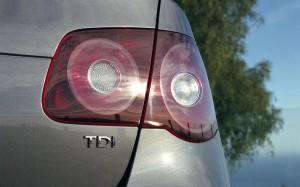
While many electric vehicles and plug-in hybrids enjoy hefty federal and state tax credits, Volkswagen Group of America says it’s “not feeling the love” when it comes to government incentives for diesel vehicles. Before you scoff at the notion of incentivizing the purchase of “old fashioned” oil burners, you’ll notice that four VW TDI models (i.e. diesel) made Consumer Reports’ list of 2013’s most fuel-efficient cars. So, there is some validity behind VW’s demands. But, does this really mean we should help commercialize technology that’s more than a century old?
I don’t think so. Even though I’m sold on diesel (literally), this really doesn’t make sense. As reported in a Detroit News article, the Environmental Protection Agency agrees. Specifically, it doesn’t believe “diesel vehicles promote the commercialization of technologies to transform the auto fleet by achieving zero or near-zero (greenhouse gas) emissions and oil consumption.” While some people disagree, I still think this is a difficult case to argue, especially in light of diesel vehicles’ increasing sales numbers. Plus, they were eligible for federal tax credits not that long ago.
Though bringing back tax incentives is off the table, VW brought up a good point worth mentioning: the federal excise tax on diesel is 24.4 cents per gallon, while gasoline is taxed at 18.4 cents per gallon. To me, it seems like the more efficient fuel should be taxed less. Even when accounting for diesel’s higher carbon content, the EPA says diesel vehicles are still 7 to 20 percent more efficient than gasoline vehicles. Surely, this rivals the efficiency gains achieved by hybrids over their gasoline counterparts. But, the crucial difference is that hybrids and electric vehicles are nascent technologies when compared to combustion engines.
While recent reports have cast doubt on electric vehicles’ current value in mitigating carbon emissions, this won’t necessarily be the case going forward if we increase renewable energy production. That’s a pretty big “if” in light of our progress, but given the potential upsides of electrification, it’s clearly the better option moving ahead.
Image “TDI” by DoodleDeMoon

